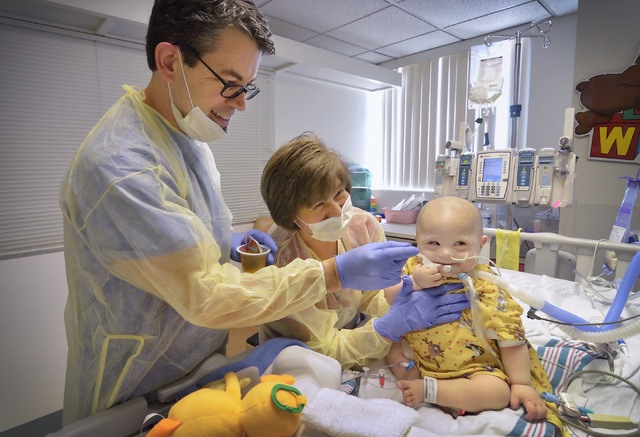Understanding How a Speech Pathologist Works with Various Age Ranges
Understanding How a Speech Pathologist Works with Various Age Ranges
Blog Article
How a Speech Pathologist Can Help Improve Communication Abilities
Efficient interaction is a foundation of professional and individual success, yet numerous people deal with challenges that impede their ability to share themselves clearly. A speech pathologist is equipped to attend to these barriers with targeted assessment and treatment strategies tailored to each person's requirements.
Recognizing Communication Problems
Understanding interaction disorders is necessary for recognizing exactly how they impact individuals' capacity to express themselves and engage with others. Interaction disorders include a variety of troubles that affect speech, language, and social communication, typically preventing effective interaction. These problems can occur from different variables, including neurological conditions, developing hold-ups, physical impairments, or mental problems.
Speech problems may materialize as problems in voice, articulation, or fluency manufacturing, influencing just how words are pronounced or spoken. Language conditions, on the other hand, include obstacles in understanding or making use of language, which can impede both non-verbal and verbal communication. Social communication conditions are defined by problems in the practical elements of interaction, such as taking kip down discussion or understanding social hints.
The effects of interaction problems are extensive, influencing not just the person's capability to communicate feelings and ideas yet additionally their social partnerships, instructional possibilities, and total lifestyle. Recognition of these problems can promote empathy and assistance, urging reliable approaches for interaction and involvement. Recognizing the intricacies of communication disorders is an important step towards advertising inclusivity and resolving the demands of those impacted.
Function of a Speech Pathologist
Speech pathologists frequently play a vital duty in treating and detecting interaction conditions, employing a series of evidence-based strategies customized to each individual's needs. These specialists deal with people across the life expectancy, from children with speech delays to grownups recuperating from strokes or traumatic mind injuries. Their proficiency incorporates a range of communication issues, consisting of articulation, voice, fluency, and language problems.
In restorative settings, speech pathologists use structured interventions designed to improve communication skills. They might execute strategies such as speech exercises, language video games, and social communication training to promote enhancements in responsive and meaningful language capabilities. Speech Pathologist. In addition, they educate customers and their family members regarding reliable communication methods and flexible methods to navigate day-to-day interactions
Beyond direct treatment, speech pathologists collaborate with other health care specialists, caregivers, and teachers to ensure an extensive technique to therapy. They advocate for clients by offering resources and assistance, allowing people to attain their interaction objectives and improve their overall quality of life. As professionals in the field, speech pathologists are necessary in cultivating effective interaction, advertising independence, and enhancing social participation for those with communication challenges.
Assessment and Diagnosis Process
The assessment and diagnosis procedure carried out by speech pathologists usually includes a detailed examination to determine communication disorders accurately. This process starts with a thorough medical history, where the medical professional gathers essential info regarding the individual's clinical, instructional, and developing background. Understanding the context of the individual's interaction problems is vital for a precise diagnosis.
Adhering to the medical history, speech pathologists utilize standard examinations and informal assessments to Get More Info assess different elements of interaction, including speech noise production, language understanding, meaningful language, and social interaction skills. These assessments are customized to the individual's age and specific problems, supplying important information for analysis.
Observation is likewise a vital component of the evaluation procedure, as it permits the clinician to see direct exactly how the specific interacts in all-natural settings. In addition, interviews with relative and educators can offer understanding into the person's communication difficulties throughout different settings.
Once the examination is complete, the speech pathologist synthesizes the searchings for to identify a medical diagnosis and recommend suitable treatments. This extensive analysis process makes sure that people receive targeted support customized to their unique communication requirements, laying the structure for effective restorative approaches.
Therapeutic Methods and Approaches
Numerous restorative methods and approaches are employed by speech pathologists to deal with a range of interaction problems effectively. One commonly used approach is expression treatment, which focuses on correcting speech seems with repeating and aesthetic signs. This strategy is specifically advantageous for individuals with speech sound conditions.
One more efficient method is language treatment, which boosts both responsive and meaningful language abilities. This might include interactive activities that promote vocabulary advancement, sentence structure understanding, and conversational skills. Furthermore, speech pathologists typically utilize social skills training to improve pragmatic language abilities, enabling useful site people to browse social communications a lot more effectively.
Fluency shaping and stuttering adjustment techniques are specifically designed to assist those experiencing fluency problems. These strategies assist clients develop smoother speech patterns and manage the psychological and physical elements of stuttering.
In addition, alternate and augmentative communication (AAC) systems are employed for people with serious communication problems. These systems, which can consist of gestures, symbols, or digital devices, give necessary support for effective interaction.
Benefits of Speech Treatment

Furthermore, speech therapy can aid in creating important listening and comprehension abilities, promoting much better interaction in discussions. Individuals with cognitive-communication disorders can additionally benefit, as therapy concentrates on enhancing memory and problem-solving capacities, necessary for efficient communication.
One more vital aspect is the psychological support given during treatment sessions. Speech pathologists produce a safe setting, encouraging people to conquer anxiety and stress associated to their interaction problems. This assistance can result in boosted self-confidence and total mental health.
Furthermore, very early intervention with speech treatment can avoid more problems, making certain that individuals reach their complete communicative possibility. In general, the advantages of speech therapy prolong past mere speech enhancement, favorably impacting different measurements of life for those influenced by communication problems.
Verdict
In summary, speech pathologists play an important duty in dealing with communication problems via assessment, diagnosis, and customized healing interventions. By employing evidence-based methods, these specialists boost individuals' speech and language capabilities, promoting enhanced quality, fluency, and social communication skills. The benefits of early intervention highlight the value of looking for aid from speech pathologists, as their knowledge can substantially boost communicative possibility, inevitably leading Resources to greater success in both professional and personal spheres.

Speech pathologists frequently play a crucial duty in diagnosing and treating interaction disorders, employing a variety of evidence-based methods customized to each person's demands. As experts in the field, speech pathologists are vital in cultivating reliable interaction, advertising independence, and enhancing social participation for those with communication difficulties.

Report this page